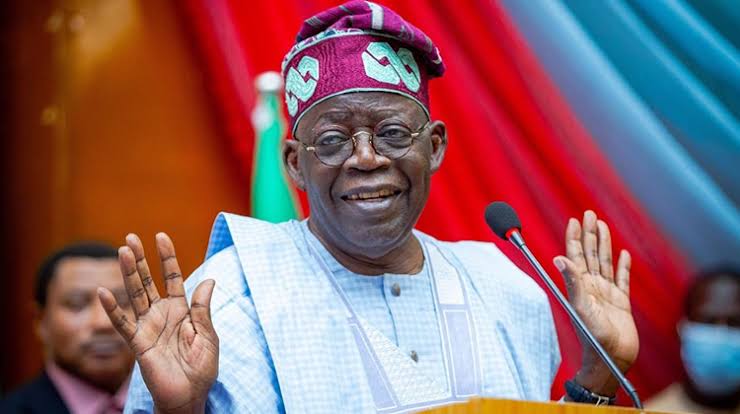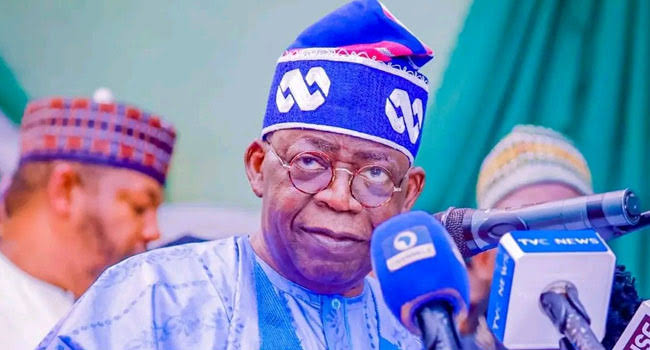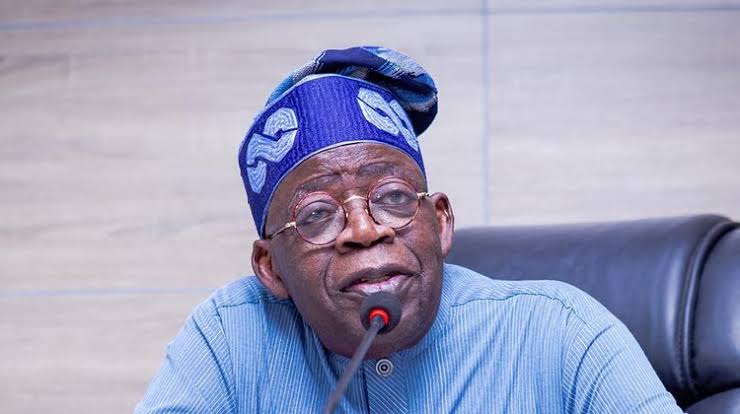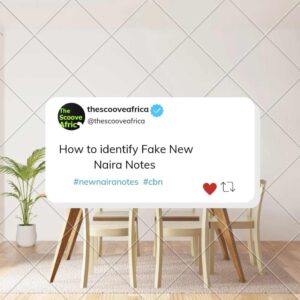
Tinubu
Bala Blu Bulaba: Tinubu to Owerri residents
“It is a town hall, not a Bala Blu Bulaba” says Bola Ahmed Tinubu to Owerri Residents.
Tinubu is making the rounds of jokes and criticism on Social Media in a viral video which has been condemned by Netizens who are trying to grasp any possible meaning of the expression.
Bala Blu Bulaba Meaning
Bala Blu Bulaba is supposed to be “Hullabaloo” which is an English word for “Noise”.
According to Tinubu, in the stakeholder meeting that was held in Owerri on Monday, he was trying to justify his actions of not attending the town hall meeting organized.
“Soso” lyrics Meaning by Omah Lay {Fully Explained}
Tinubu implied that the noise and Interruptions of the audience would have made the town hall a joke, and unsuccessful at best. However, in an attempt to qualify this activity with the popular “Hullabaloo” word, Tinubu, much to the confusion of the listeners, said “A town hall, different from Balabloo-blu-bulava”.

It was apparent he might have been struggling to pronounce the word “Hullabaloo”
Meanwhile, Keyamo- spokesperson for the All Progressive Congress Party, stated that it was a humorous attempt by the Presidential aspirant.
This has been viewed as an attempt to deflect criticisms that Tinubu saying Bala Blu Bulaba instead of Hullabaloo might show how incompetent he is both intellectually and mentally considering that he is already so old and is still running for president.
Idan Slang Meaning: 5 signs you are Idan!
Keyamo has declared that Tinubu saying Bala Blu Bulaba is just a joke, and nothing more.
Watch the video below:
Tag: Bala Blu Bulaba
Go to Home
About
Tinubu spent his early life in southwestern Nigeria and later moved to United States where he studied Accounting at Chicago State University.
He returned to Nigeria in the early 1980s and was employed by Mobil Nigeria as an accountant, before entering politics as a Lagos West senatorial candidate in 1992 under the banner of the Social Democratic Party.
After dictator Sani Abacha dissolved the Senate in 1993, Tinubu became an activist campaigning for the return of democracy as a part of the National Democratic Coalition movement. Although he was forced into exile in 1994, Tinubu returned after Abacha’s 1998 death triggered the beginning of the transition to the Fourth Republic.
In the first post-transition Lagos State gubernatorial election, Tinubu won by a wide margin as a member of the Alliance for Democracy over the Peoples Democratic Party’s Dapo Sarumi and the All People’s Party’s Nosirudeen Kekere-Ekun.
Four years later, he won re-election to a second term over the PDP’s Funsho Williams by a reduced margin.
Tinubu’s two terms were marked by attempts at modernizing the city of Lagos and his feuds with the PDP-controlled federal government.
After leaving office in 2007, he since played a key role in the formation of the All Progressives Congress in 2013.
Long and controversial, Tinubu’s career has been plagued by accusations of corruption and questions about the veracity of his personal history.
Disputes over his age, educational qualifications, and name emerged throughout his political career due to conflicting documents and statements from Tinubu himself. While there are unsubstantiated rumours that Tinubu was born with a different name to a different family in modern-day Osun State, the main controversy was sparked by discrepancies in certificates Tinubu submitted to the Independent National Electoral Commission.
Documents submitted ahead of running for governor in 1999 falsely stated that Tinubu attended Government College, Ibadan for secondary school and Chicago State University records had his birth year as 1954, not 1952; in response, Tinubu claimed Tokunbo Afikuyomi- who was then a senator- accidentally falsified the 1999 submission and the university had simply made an error.

The controversy was reignited in 2022 when documentation submitted by Tinubu to INEC for the presidential election was released, revealing that he did not state the primary or secondary school he attended in contradiction with previous sworn forms and public statements.
Tinubu, alongside a new deputy governor, Femi Pedro, won re-election into office as governor in April 2003. All other states in the South West fell to the People’s Democratic Party in those elections.
He was involved in a struggle with the Olusegun Obasanjo-controlled federal government over whether Lagos State had the right to create new Local Council Development Areas (LCDAs) to meet the needs of its large population.
The controversy led to the federal government seizing funds meant for local councils in the state.[citation needed] During the latter part of his term in office, he was engaged in continuous clashes with PDP powers such as Adeseye Ogunlewe, a former Lagos State senator who had become minister of works, and Bode George, the southwest chairman of the PDP.
Relations between Tinubu and deputy governor Femi Pedro became increasingly tense after Pedro declared his intention to run for the gubernatorial elections. Pedro competed to become the AC candidate for governor in the 2007 elections, but withdrew his name on the eve of the party nomination. He defected to the Labour Party while still keeping his position as deputy governor.
Tinubu’s tenure as Lagos State Governor ended on 29 May 2007, when his successor Babatunde Fashola of the Action Congress took office








